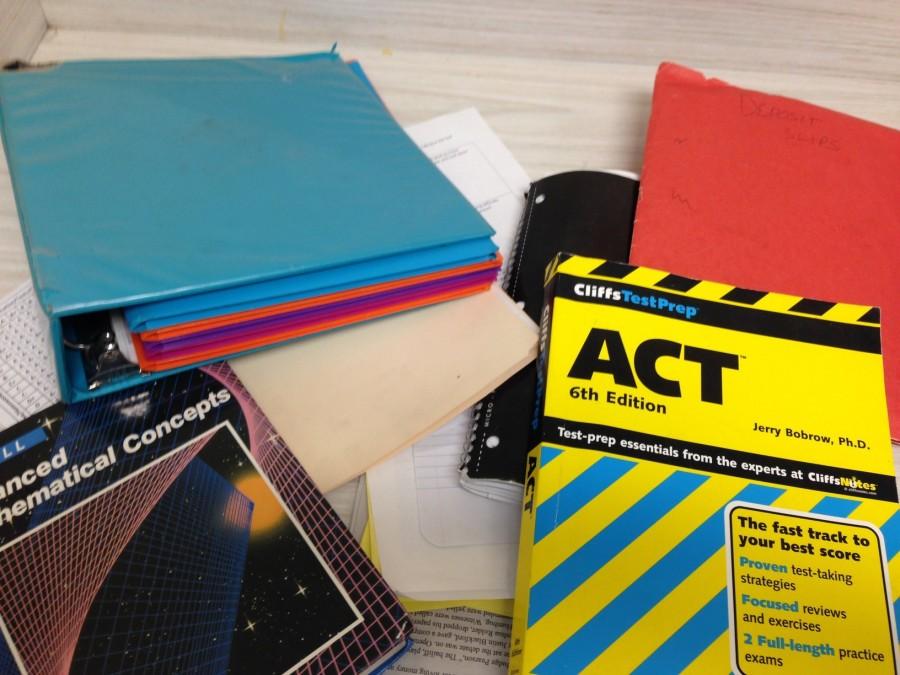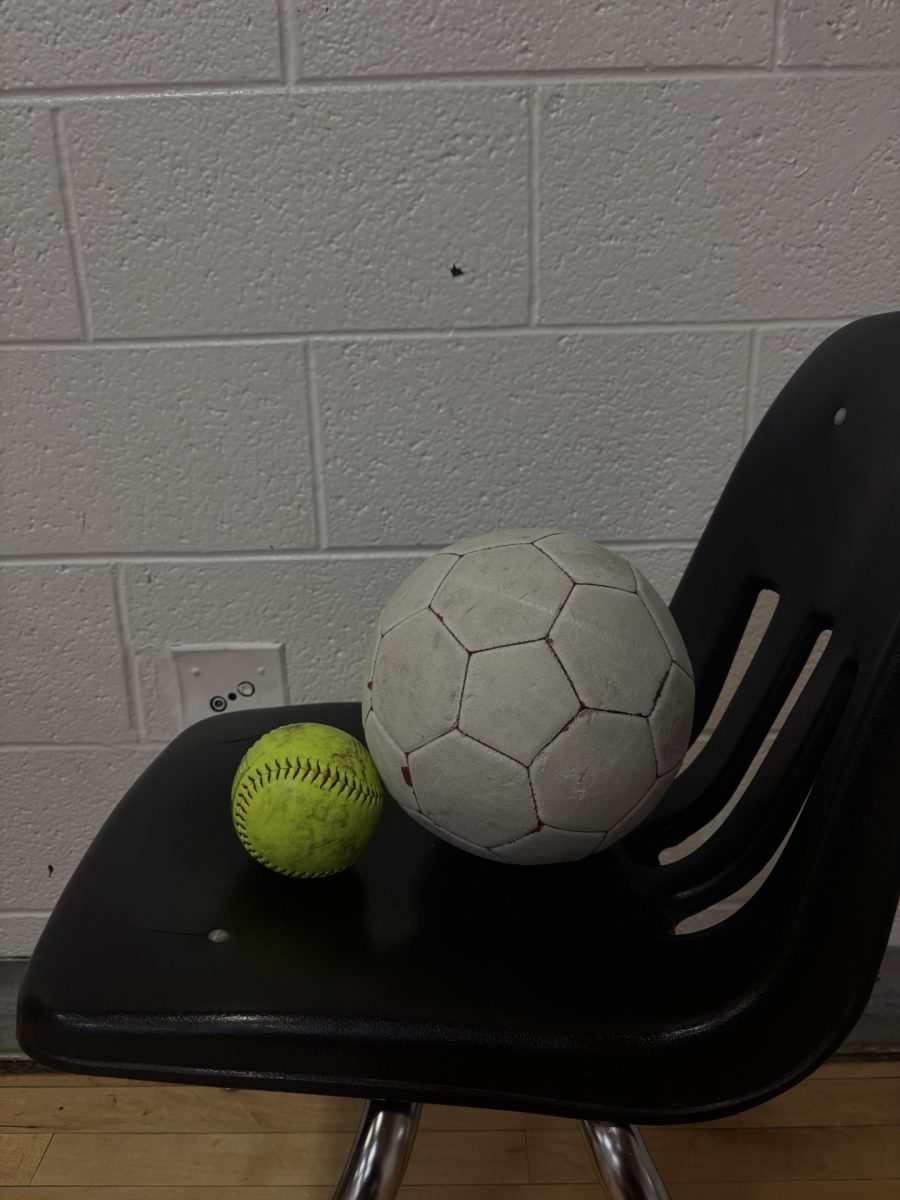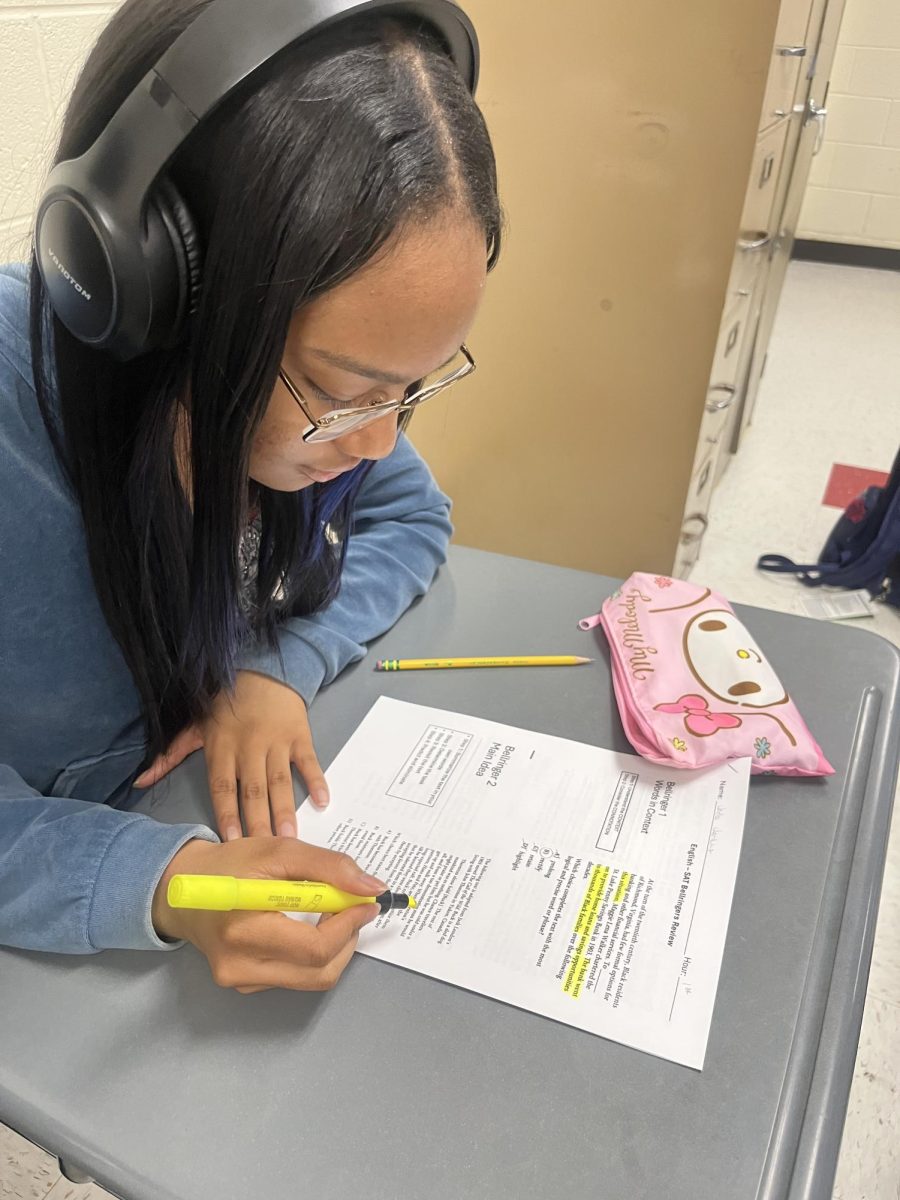Stress: a slippery slope
About 24 percent of students are stressed from school.
February 12, 2015
School is a place for social interaction, sports, clubs, and primarily learning, but when a student is constantly involved with school activities, how do they simply balance all of it? It is a stressful scenario that many high school students are in, nonetheless. Everyone aspires success in school, but how can students cope when it seems as if an ample amount of stress is consistently added to their life? Rather, if it is studying for a test or exam, keeping up a grade in a class, prepping for a game, or turning all class and homework assignments in on time, it is all a bit worrisome, not to mention everyday tasks and responsibilities outside of school. It is certainly doable, but very tiresome and monotonous.
Stress itself takes a toll on a student’s ability to mentally and physically function. It leads to anxiety and not doing work at all, ultimately affecting daily performance and motivation. Stated on npr.org, almost 40 percent of parents say their high-schooler is experiencing a lot of stress from school, according to a new NPR poll conducted with the Robert Wood Johnson Foundation and the Harvard School of Public Health. Homework was a leading cause of stress, with 24 percent of parents saying it’s an issue. In most cases, that stress is from academics, not social issues or bullying, the poll found.
On average, high school students receive an hour worth of homework each night, per class. Now, that is not always the case, the amount of advanced classes a student has can widely affect the time spent on homework each night. On top of the homework load, most students participate in extracurricular activities which could take anywhere from an hour to more than four hours. Not only do most students have to balance homework and extracurricular activities, but some students even have to worry about having a job. In order to execute a chaotic schedule like this, one needs rest and energy. The National Sleep Foundation claims that teenagers are supposed to get nine full hours of sleep to function the best. The study also showed that only 15 percent of teenagers get the full nine hours of sleep. Being restless with few hours of sleep can affect a person’s ability to learn and concentrate which leads to a number of other things. Going to bed at the appropriate time with a lot of schedule in one day is pretty hard to imagine.
Yes, a lot of things cause stress and contributes to it as well but to completely escape the stress of school along with other responsibilities when you’re a teenager, it is merely impossible, but how can students reduce it so they are not on the brink of explosion? There is a plethora of ways to limit stress. Wake up with a positive and optimistic attitude; with the proper attitude, a lot, more than you think can get accomplished. Perhaps even create a schedule of everything you have to do to aid with time management. When taking care of the things to do, only worry about one thing at a time; try not to think about how much more you have to do, but focus on the one at hand.When doing a big load ofhomework, allow yourself short periodic breaks from time to time and reward yourself with a snack as motivation to keep going.
Everyone’s stress is measured in different ways but it is detrimental to daily performance and health. Student should be able to live their lives without being pulled down by the stress of school because there is still a lot to grow and learn from but stress should not be the main thing that prevents them from doing so. Success is certainly a virtue students seek but it should not consume lives, or get in the way of things that a student would like to do in the near future as young and adventurous teenagers. Students cannot completely grasp control over the things that happen in life but they can surely make an attempt to recover and move on so at the end of the day, they are satisfied and happy.




























